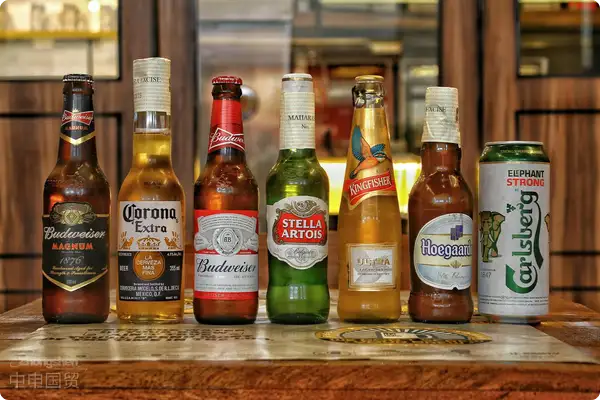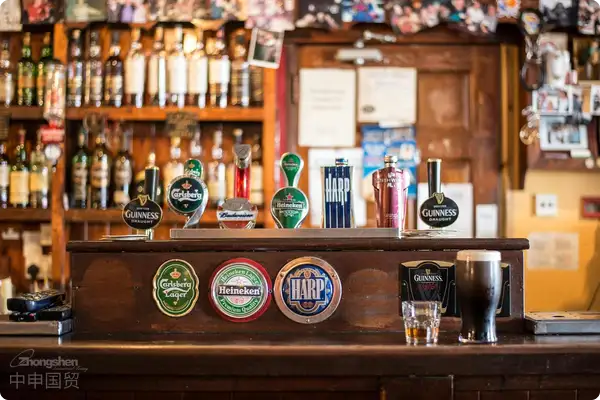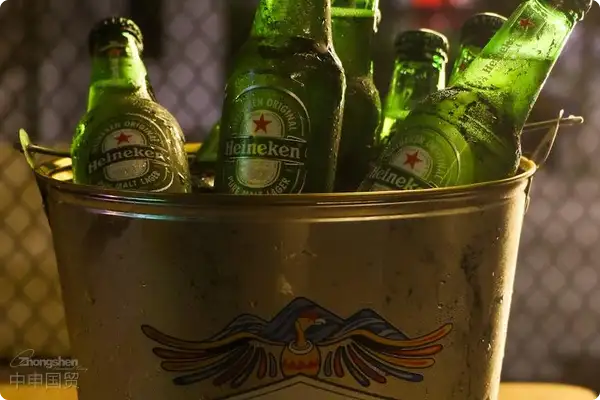- Shanghai Zhongshen International Trade Co., Ltd. - Two decades of trade agency expertise.
- Service Hotline: 139 1787 2118
For enterprises hoping to export their products to Thailand, a deep understanding of Thailands food regulatory process is not only a necessary condition for complying with the law but also the key to ensuring the successful entry of their products into the Thai market. Thailand is known for its unique food safety standards and import requirements, which are designed to protect consumer health and maintain public safety. But specifically, what do these regulatory requirements include? And how do they specifically affect exporters?
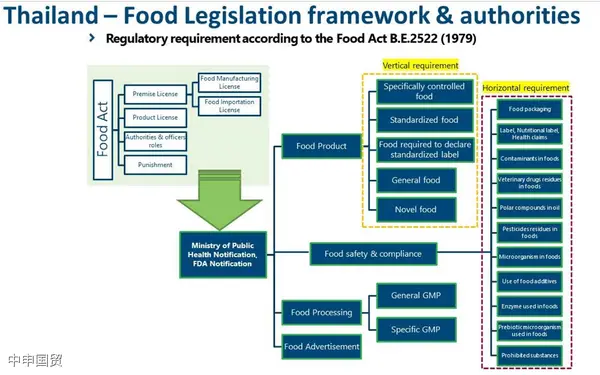
I. Thailands Food Regulatory Agencies and Regulations
Regulatory Agencies
Thailands food regulatory system is jointly composed of multiple departments. The core institutions include:
(1) Ministry of Agriculture and Cooperatives (MOAC):Through its subordinate Department of Agriculture (DOA) and the National Bureau of Agricultural Commodity and Food Standards (ACFS), it is responsible for formulating and implementing safety standards for agricultural products.
(2) Ministry of Public Health:The subordinate Food and Drug Administration (TFDA) is responsible for regulating the safety and quality of food.
(3) Ministry of Commerceforeign tradeDepartment and Customs of the Ministry of Finance:Responsible for monitoringimport and exportactivities and implementing border inspections and tax policies respectively.
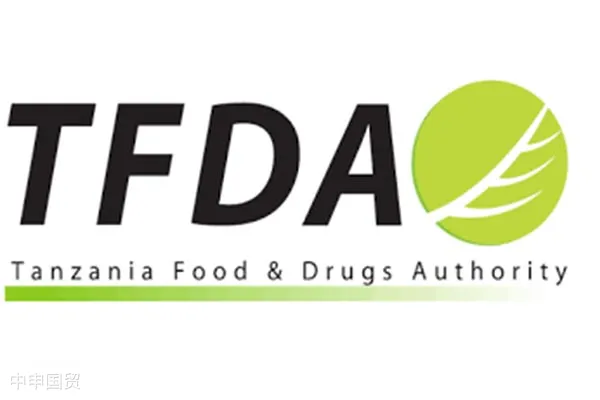
2、Regulatory Regulations
Key regulatory documents include:
(1) Food Act:It stipulates the basic safety and hygiene requirements for food.
(2) Plant Quarantine Act:It involves quarantine measures for imported plants and plant products.
(3) Guidelines for Implementing Surveillance Measures on Imported Fresh Fruits and Vegetables That May Contain Pesticide Residues:This regulation pays special attention to pesticide residues and has a particularly direct impact on exporters.
II. Standard and Certificate Requirements
Pesticide Residue Limit Standards
When setting the limit standards for pesticide residues in food, Thailand refers to international standards and its own agricultural and public health needs. For example, in the case of white radishes, a comparison of pesticide residue limits between Thailand and China shows the differences in standards between the two countries. The Thai government has set strict surveillance measures for fresh fruits and vegetables that may contain pesticide residues. For example, for pesticides such as DDT and dimethoate, there may be a large difference in the limit standards between Thailand and China, and the limit of dimethoate in Thailand is 500 times that in China.
The formulation of pesticide residue standards is based on the requirements of food safety protection, and the standards take into account the types of agricultural products, consumption methods, and health risks to consumers. For example, for fresh vegetables that are directly consumed, Thailand may set more stringent pesticide residue limits. This means that before exporting, exporters need to conduct professional laboratory tests to ensure that the pesticide residue levels in their products meet Thai regulatory requirements.
Indonesia and China also differ in the limits of heavy metals, especially in the control of cadmium. Currently, Indonesia only sets a limit for the lead content, which is the same as Chinas lead standard (0.1 mg/kg), but there is no clear limit for cadmium. This is a regulatory difference that enterprises exporting to Indonesia need to pay attention to.
Regarding the limits of heavy metals, Thailand has strictly restricted the contents of lead and cadmium in food. As previously mentioned, Thailands cadmium limit standard is twice that of China (0.1 mg/kg), while the lead limit is the same as that of China (0.1 mg/kg). These standards are formulated based on the understanding of the hazards of potentially toxic heavy metals in food, especially their cumulative effects in the human body, which may lead to serious health problems such as kidney and bone damage.
The Thai government requires that all imported food must be tested for heavy metal content before import to ensure that it does not exceed the specified safety limits. Exporters must provide a test report issued by an accredited testing institution to prove that their products meet Thailands heavy metal pollutant standards. This step is a key part of customs clearance and an important measure to protect the health of the Thai public.
Conformity assessment procedures
The conformity assessment procedure is a multi - step process, involving all aspects from the application for import permission to the final approval of products to enter the Thai market. First, the importer must apply to the relevant Thai department and obtain a food import license. This license is usually valid for three years and must be renewed before it expires.
Imported agricultural products must also meet packaging and labeling requirements. According to the regulations of the Thai Ministry of Health, all imported fruits and vegetables must be labeled in Thai, including information such as the importers name, food registration number, manufacturer, place of origin, and production batch. In addition, the packaging materials must be unused and clean to ensure the hygiene and safety of the food during transportation.
III. Inspection, Quarantine, and Import Procedures
Requirements for inspection and quarantine certificates
All agricultural products exported to Thailand must be accompanied by a phytosanitary certificate from the exporting country. These certificates need to clearly state that the products meet specific inspection and quarantine conditions, which is a crucial step for customs clearance.
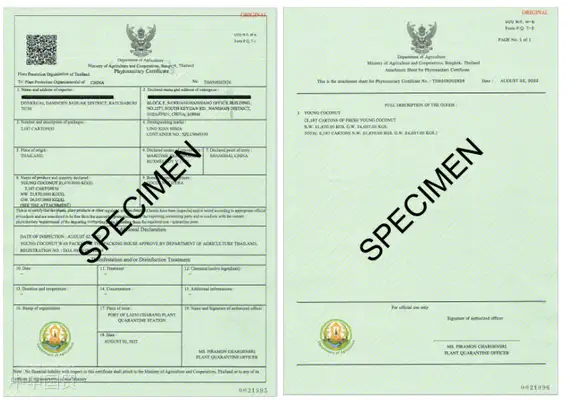
Import procedures
During the import process, the importer or agent needs to submit a series of entry documents in the Thai electronic customs system, such as import declarations, invoices, etc. These materials are crucial for smooth customs clearance. At the same time, Thai customs, the Department of Agriculture, the Food and Drug Administration and other departments will jointly conduct inspection and quarantine of the products.
Understanding and complying with Thailands food regulatory requirements is not only a legal obligation but also a guarantee of business success for enterprises that hope to export their products to Thailand. By accurately implementing these requirements, enterprises can not only effectively avoid potential legal risks but also build brand reputation and consumer trust in the Thai market.
Related Recommendations
Category case
Contact Us
Email: service@sh-zhongshen.com
Related Recommendations
Contact via WeChat

? 2025. All Rights Reserved. 滬ICP備2023007705號-2  PSB Record: Shanghai No.31011502009912
PSB Record: Shanghai No.31011502009912
